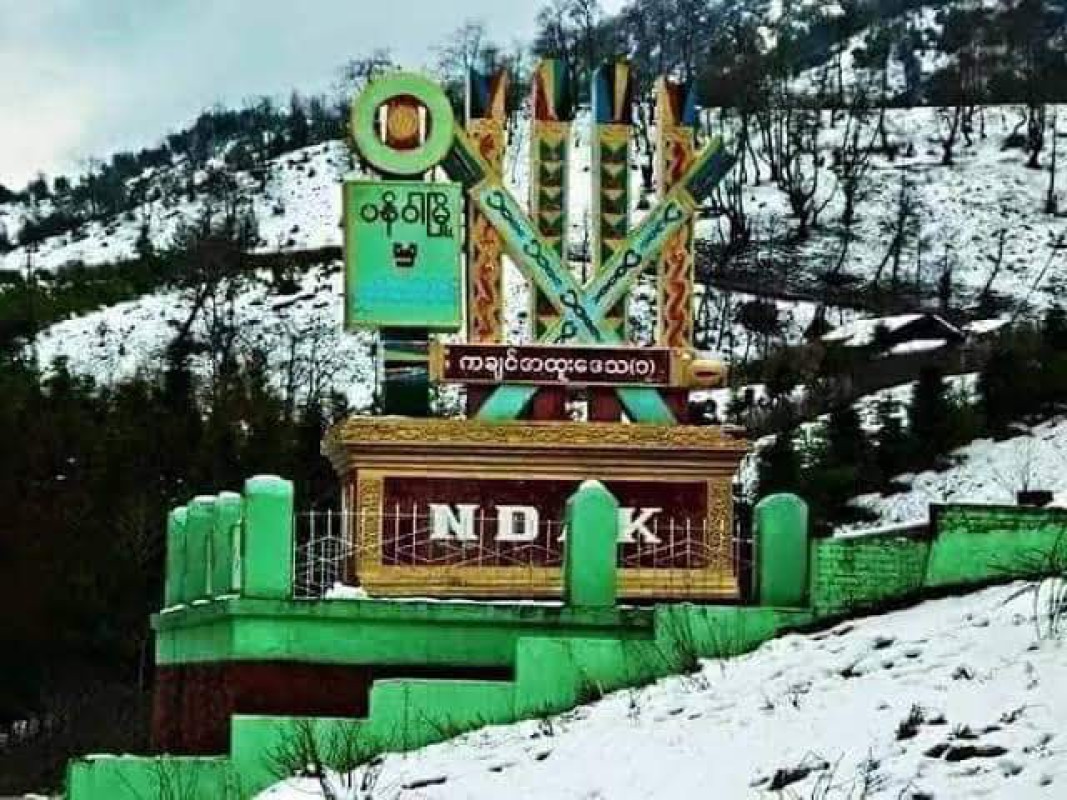Excavating minerals, oil fields prolongs existence of armed terrorists in Myanmar

724

Tun Mon Thet (NP News) - Oct 30
The armed terrorists in Myanmar are surviving their persistence with outlaw status by digging minefields and oilfields in the upper, central, eastern, northeastern, and southern parts of the country as they generate income by selling those precious resources in the black markets. An effective control mechanism is still lacking to prevent illicit exploitations of natural resources in the regions.
Ethnocentric armed terrorists such as UWSA (United Wa State Army), MNDAA (Myanmar National Democratic Alliance Army), KIA (Kachin Independence Army), and TNLA (Ta’ang National Liberation Army), PDF terrorists, and many non-State armed troops are excavating golds, minerals, tins, rare earth, gemstones, lithium, uranium, and onshore oil fields, in massive scales, in Kachin State, Shan State, Mandalay Region, Magway Region, Sagaing Region, Kayah State, Kayin State and Taninthayi Region, especially in the territories they illegally seized in previous months.
This 27th October has turned a year anniversary of Operation 1027, one of the bloodthirsty military assaults conducted and backed by the mechanisms of the deep state’s interventions in Myanmar. Yet, sadly, it is still a doubtful question whether Myanmar Tatmadaw will regain those lost territories.
Recent reports stated that the TNLA and PDF terrorists are illegally excavating the minefields of precious gems and stones in Mogok Town, especially from constrained areas where excavations were allowed with limited scales in successive administrative eras in order to prevent the extinction of natural resources due to large-scale excavations.
Some areas in Mogok allow only limited scales of excavations of gemstones to preserve the sustainability of the natural gems on the earth. Those kinds of lands in Mogok involve Mogok Prison, Mogok Golf Club, and the Mogok Lake. Reports said the allied forces of TNLA and PDF terrorists aggressively started the excavations in those locations in Mogok after they seized the town in late July 2024.
A businessman who prefers to be mentioned anonymously elaborated, “The PDFs and the ethnic armed troops are illegally unearthing the natural resources in many territories. For instance, they excavate gold in Tabeikgyin, Madaya, and Banmauk towns, sapphire, ruby, and precious stones in Mogok, rare earth in Kachin, and hand-drilled wells in Magway and Kathar.”
The man continued, “The government should not allow those PDF and ethnic armed groups doing this in those lands for so long. It can finance them to buy weapons and reinforce the soldiers they require without making much effort. Excavating gems and mineral resources can earn them a lot and it is much more than money they collected by forced extortion at the inspection gates between one city and another.”
In August 2024, the PDF terrorists reportedly seized the Chinese-owned Takaung nickel factory located in Tigyaing Township, Sagaing Region.
Other reports also stated that the KIA confiscated Panwah City in Kachin State, the borderline area with China on 18 October. Panwah is the city where rare earth is produced. There are almost 300 rare earth excavation sites within the city. The KIA tried to commence excavations of rare earth in Panwah.
However, the ground information reported that the Chinese side cut the electricity supply to Panwah City as soon as the KIA claimed conquer over the land, due to which, the KIA has found difficulties in excavations of rare earth in the region.
Likewise, experts have noted that the Taninthayi Region has earth layers that hold lithium and important resources such as uranium and rare earth elements for nuclear-based electricity generation.
According to the experts, uranium has been found in white clay and black sediment in the districts of Taninthayi, Bokpyin, and Kawthoung. However, illegal miners who make alliances with PDF terrorists are using heavy machinery to extract these resources, resulting in deforestation and extensive landfall.
The illegal mining activities have severely damaged the natural environment and led to deforestation. Lack of regulations, rule of law, and weak governance of the Tatmadaw and the government cannot reduce the exploitations of land uses in the region. Worst of all, profits generated from those illegal trade are reportedly funding the non-State armed terrorist groups.
The presence of uranium in the white clay and black sediment of the region attracts illegal buyers from China. The ground information also reported that Chinese buyers who illegally purchase those elements do not export them directly to China. Instead, they transport these materials covertly to Thailand, where the materials are tested before they are sent to China. These resources may also contain rare earth elements.
There are illegal buyers from neighburing countries such as China and Thailand who want to exploit the regional instability and weak rule of law in the borderline regions for their business benefits. Illegally buying those valuable elements and minerals is somehow financing terrorism in Myanmar conflicts.